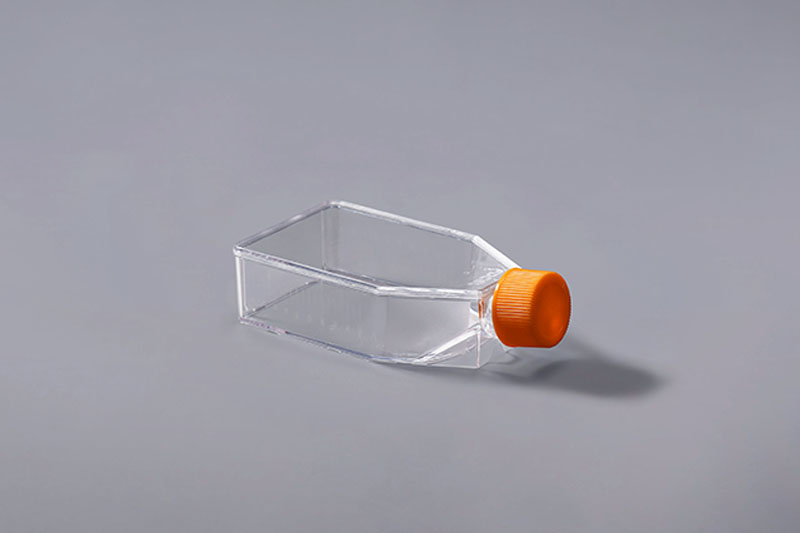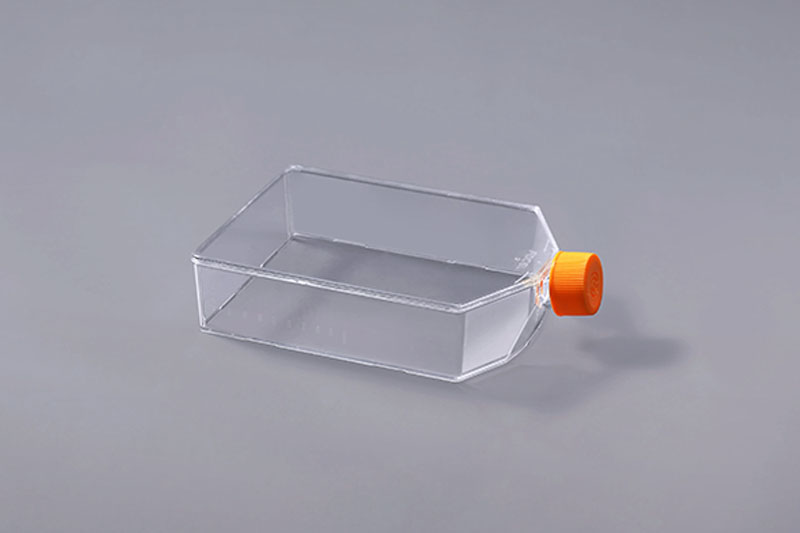Cell culture refers to a method that simulates the in vivo environment in vitro to allow it to survive, grow, reproduce and maintain its main structure and function. One of the most important conditions is sterility. It requires that the cell culture environment must be sterile, and the involved cell culture flasks and other culture tools also need to meet the sterile requirements and be sterilized.
Among many sterilization methods, the cell culture flask is mainly sterilized by cobalt 60. It uses the irradiation of 60Co gamma rays to act on microorganisms, directly or indirectly destroy the nuclei of microorganisms, thereby killing microorganisms and sterilizing effect. It is one of the irradiation sterilization techniques, and the product is irradiated with γ-rays produced by the radioactive isotope cobalt 60. In the process of energy transmission and transfer, strong physical and biological effects are produced to achieve the purpose of killing insects, sterilizing and inhibiting physiological processes.
FuDau T75 Cell Culture Flasks
60Co-γ-ray irradiation sterilization is a special "cold processing" technology. It is sterilized at room temperature, with high γ-ray energy, strong penetrating power, no environmental pollution, no residue, and complete sterilization effect. It causes an increase in the internal temperature of the product, so it is called "cold" sterilization.
FuDau T225 Cell Culture Flasks
The cell culture flask after cobalt 60 sterilization can meet the requirements of sterility and avoid contamination of the cells in the later stage due to the presence of various microorganisms in the culture container, which will affect the experimental process.
The FAI climbed 5.9 percent year-on-year in the first 11 months of 2018, quickening from the 5.7-percent growth in Jan-Oct, the National Bureau of Statistics (NBS) said Friday in an online statement.
The key indicator of investment, dubbed a major growth driver, hit the bottom in August and has since started to rebound steadily.
In the face of emerging economic challenges home and abroad, China has stepped up efforts to stabilize investment, in particular rolling out measures to motivate private investors and channel funds into infrastructure.
Friday's data showed private investment, accounting for more than 60 percent of the total FAI, expanded by a brisk 8.7 percent.
NBS spokesperson Mao Shengyong said funds into weak economic links registered rapid increases as investment in environmental protection and agriculture jumped 42 percent and 12.5 percent respectively, much faster than the average.
In breakdown, investment in high-tech and equipment manufacturing remained vigorous with 16.1-percent and 11.6-percent increases respectively in the first 11 months. Infrastructure investment gained 3.7 percent, staying flat. Investment in property development rose 9.7 percent, also unchanged.
 English
English




















































